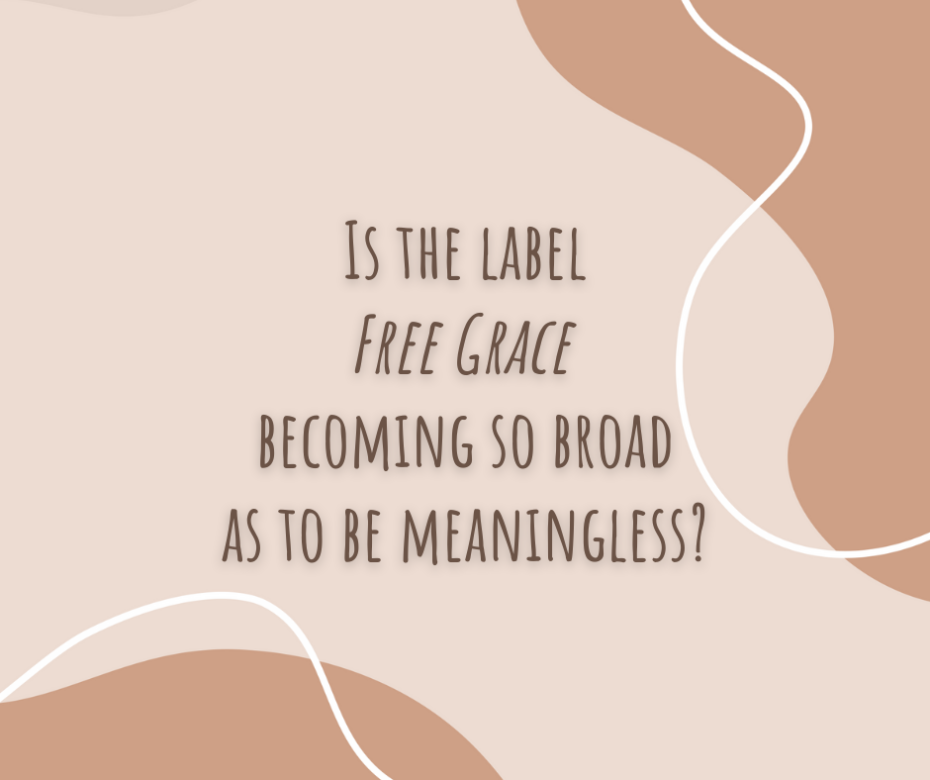Another good question that resulted from a recent post at the GES Facebook page was this: “Who, according to GES, can be termed Free Grace?”
The GES view of what Free Grace Theology (FGT) is and who holds to it is different from the views of many who use that same terminology.
I will compare and contrast two different views of FGT.
Both agree that all who believe in Jesus have everlasting life that can never be lost. We agree that eternal security is true, even without perseverance. We view the warning passages in the New Testament not as warnings about hell, but as warnings about temporal judgment and missing out on ruling with Christ in the life to come. We interpret many of the so-called problem passages in the same way.
Those are many areas of agreement.
“But wait,” as the TV pitchman says, “there’s more.”
The areas of disagreement among those who profess to hold to FGT are major as well. I’ve chosen three to discuss.
The nature of saving faith. GES suggests that saving faith is simple persuasion. We are comfortable calling it mental assent. Many who profess FGT say that saving faith includes a willful component, an emotional component, and an intellectual component. They do not believe that saving faith is simple persuasion.i
The precise object of saving faith. GES understands the Scriptures to teach that one must believe in the gift of God and the Giver of the gift, as the Lord Jesus said in John 4:10. Compare John 3:16; 5:24; Eph 2:8-9; Rev 22:17. Others, however, who profess FGT, say that one need not believe in the gift of God. One simply needs to believe in the Giver of the gift. They specifically say that irrevocable salvation is the result of saving faith and not the object of it.ii
The spiritual condition of Catholics and others who hold to works salvation. One ramification of the preceding point is that many who profess to hold to FGT believe that most people in Christianity are born again. They suggest that Roman Catholics, Eastern Orthodox, and works salvation Protestants are all born again. Since they view belief in the gift of God as a sanctification issue, not a justification issue, they suggest that all who believe in Jesus’ deity, death, and resurrection are born again even if they do not believe in the irrevocable salvation He promises.iii
Those three differences are so significant that the areas of commonality are not sufficient to have one label that covers both groups. One has a small tent. The other has a large tent.
__________
i See, for example, D. R. Anderson, F. Chay, J. Dillow, J. P. Tanner, and K. Wilson, A Defense of Free Grace Theology: With Respect to Saving Faith, Perseverance, and Assurance, ed. by Fred Chay (NP: Grace Theology Press, 2017), pp. 69-71. A heading on p. 69 reads, “Faith Is More Than Intellectual Assent.”
ii See, for example, C. Bing, “Does John’s Gospel Demand Belief in Eternal Security for Salvation?” GraceNotes no. 79.
iii See, for example, D. R. Anderson, “Is Belief in Eternal Security Necessary for Justification?” Chafer Theological Seminary Journal 13 (Spring 2008): 47-59, and K. Wilson, Heresy of the Grace Evangelical Society (NP: Regula Fidei Press, 2020), pp. 133-34. See also the article in note 2.


